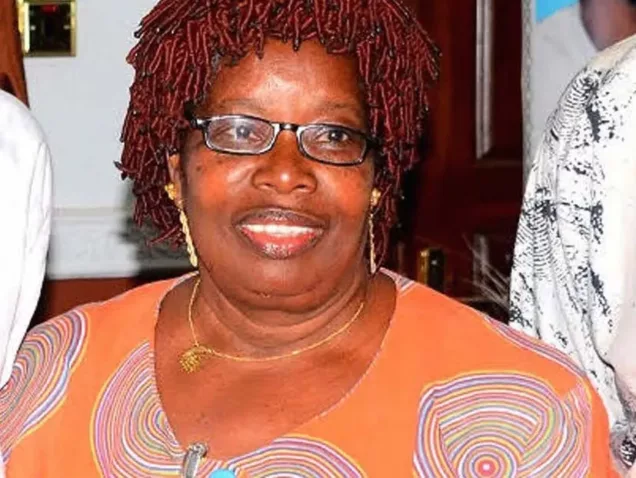SPOTLIGHTS
- Stakeholders advocating for changes to the NIMASA law
- Dr Chilaka believes reserving cargo for indigenous companies will boost the shipping sector and create jobs.
- Laments absence of Nigerian shipping lines in international trade, emphasizing that 70% of cargo in West Africa is destined for Nigeria
- No Nigerian shipping lines involved in cargo lifting
- His new book, “Nigeria’s Shipping Policy and Maritime Trade up to the Early 21st Century,” explores these issues in detail
By Steve Agbota
A maritime expert has called on the federal government to reactivate the 40-40-20 cargo-sharing formula of the National Maritime Authority (NMA) era to enable indigenous ship owners to have a fair share of $2 billion from Nigeria’s annual $9.1 billion cargo freight.
Dr Chilaka stated this in Lagos while addressing reporters ahead of the public presentation of his new book “Nigeria’s Shipping Policy and Maritime Trade up to the Early 21st Century said that stakeholders are now visiting the National Assembly, advocating that the NIMASA law, Sections 35-38 should be fine-tuned, so as to bring back the cargo allocation era, empower Indigenous shippers and guarantee training of Nigerian seafarers.
The maritime researcher and lecturer at the University of Lagos (UNILAG), Chilaka, stressed that the NMA-era cargo allocation practice empowered and protected indigenous shippers from established multinationals.
Read also: Closure of marine bridge hampering cargo evacuation from Apapa port –Haastrup
“We need to go back to the National Assembly to fine-tune Sections 35 and 38 of the NIMASA Act. There are huge cargoes with the numerous infrastructure projects carried out by the federal government, state governments and even local governments.
“From the Lagos-Calabar Coastal roads being planned by the current administration to the pipeline projects, even the Anchor Borrowers scheme which saw large quantities of fertilizer importation; these are huge cargoes that could enhance shipping in the country.”
“Cargo is key. Shipping goes with the cargo. If these cargoes are reserved for indigenous ship owners, it would go a long way to empowering them. This will also empower the employers of maritime labour. Seafarers will have better opportunities and other related industries will also develop,” he said.
However, he lamented that today there is no single Nigerian shipping line involved in international trade, adding that 70 per cent of all the cargoes coming to West Africa are destined for Nigeria, and the ships people see around the Gulf of Guinea are destined for Nigeria.
“Today, indigenous shipping lines are not in any cargo lifting or chattering business. In the past, we had the NMA cargo allocation scheme, where the cargoes in the hands of foreigners now were with the National Maritime Authority.
“Back then, all the cargoes coming into Nigeria were warehoused at CBN (Central Bank of Nigeria), which gets all the Form C. Because your payment passes through CBN, they submit the cargoes to NMA and there is a sharing formula: 40-40-20,” he added.
Speaking on his new book, the author revealed that the book to be launched traced the origin and implementation of shipping policies in Nigeria from colonial times to the early 21st century.
“The book contains the historical records of the shipping policy formulation and implementation in Nigeria, the successes and the failures. It also contains chapters on the following institutions and milestones in Nigeria’s maritime trade and other modal applications.”
The book is equally a product of Chilaka’s experience in lecturing and mentoring students of transportation, logistics, and the history of transport at Lagos State University (LASU) and the University of Lagos (UNILAG). The author packaged the book as a major contribution to the recommended texts for classwork and assignments.
The awards themed: “Nigerian Indigenous Cargo-Carrying Capacity Advocacy Awards,” are meant to raise awareness of the law, NIMASA Act Sections 35-38, which provides for indigenous carriers to carry Federal, State, and Local Government cargoes in international trade, and to recognise operators who are keen to bring this economic empowerment of Nigerian carriers into effect.











